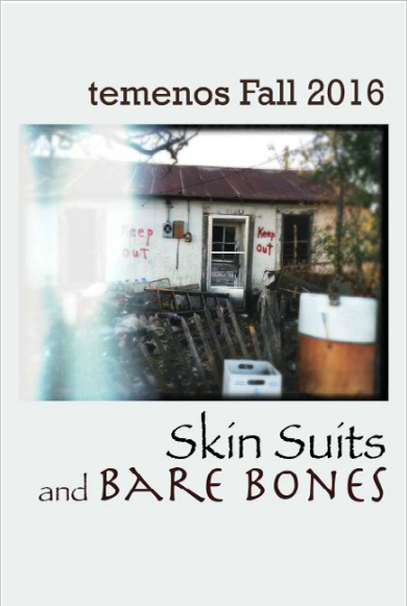M.A.H. Hinton “Crow Sings,” “Crow is Reborn”As with many poets, birds are common in my poetry—as metaphor, myth, and character.
At our home in Minnesota, we have four bird feeders that are regularly visited by cardinals, chickadees, juncos, and various warblers, sparrows, and finches. Over the years in our trees and our backyard I have seen hawks, eagles, falcons, indigo buntings, bluebirds, blue jays, doves, hummingbirds, Baltimore Orioles, woodpeckers of every kind, and of course, crows. I do not consider myself a real bird-watcher but I will occasionally take a pair of binoculars and go down along the Minnesota River which is less than two miles from our house. See more >>> Jenny Ferguson “72 Hour Leave”This short story is part of my novel THE INTERSECTION[S]. But still, while it belongs to a larger body of work, it stands on its own. Its voice coming at you from a memory, echoing out from Germany, reminiscing on Afghanistan, and then rippling toward North America, specifically the colonial nations of the U.S. and Canada. I’m the child of a solider, and the grandchild and grandniece of soldiers. These men have shaped who I am, and the military life has shaped how I see the world. See more >>>
M. Wright “Bittermilk,” “Field & Fly”These poems were plucked from my chapbook a boy named jane (Bottlecap Press, 2017). They are an earnest attempt at writing persona poetry à la John Berryman where the voice of the poems reconciles with the entropic nature of the body. The intention with this writing was to lace sentiments of the meaningful and the meaningless through the poem to humble the poetry. Not unlike the indifferent atoms that make up the fictional body of the narrator (atoms which may have once made up the bodies of dinosaurs or circus flies), this language is as intentional as it is unplanned. The reader is meant to confront the existential in these poems to both feel known and to feel discomfort.
|
Jane Gilchrist “Corydon Waits”The characters are nameless except for: Miss Betty, a silly gossip who remembers having heard tell of a demon; Corydon, himself a demon; and Father Maxwell, who either struggles with a demon and loses or succumbs to a demon and loses. He was not in a fair fight.
The woman and the man are archetypal persons of privilege, able to do as they please. Ordinary rules do not apply to them. They feel no social obligation. The man is a criminal and a loving husband and father. The woman is a thrill-seeker and a loving wife but not a loving mother. See more >>> K.S. Lack “Cane”“Cane” was not an easy piece for me to share. Although I have referenced being ill and disabled before in my work, this was the first time I explicitly brought it to the forefront.
I reluctantly started using canes as walking aids close to three decades ago. I first saw the type of cane described here in the hand of an elegant, middle-aged woman at a swanky Manhattan bistro back in the late 1990s. My husband took down the information about the maker and stored it away for about fifteen years—then had one made for me as a present when I turned 40. It is a wonderful instrument whose stark beauty does not hide how well it fulfills its designated function. It quickly became my “go-to” cane. See more >>> Mary Makofske “Second Skin”I grew up in an era when teenage girls were expected to wear girdles. Not only the pudgy ones, like me, but even the athletic girls with spectacular figures. In spite of the pushback from some quarters, such as my eccentric gym teacher who one day paced before us ranting about the physical damage girdles could do us, most of us yielded to the pressure (societal and literal). In Washington, D.C., where I grew up, wearing a girdle in the summer was sheer torture. Thank goodness, attitudes changed, as did girdles, becoming more breathable and endurable for women who still felt compelled to wear them. See more >>>
Alan Harris
|
